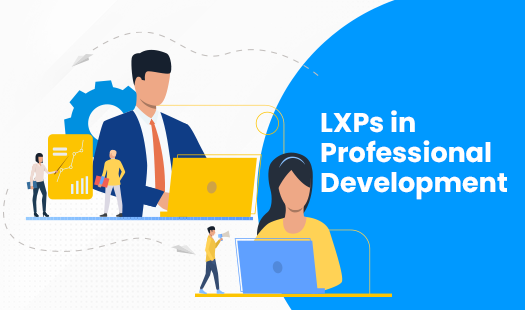
When it comes to corporate training and professional development, the diversity in learning patterns has never been more pronounced. Individuals have distinct preferences, pace, and styles when it comes to acquiring new knowledge and skills. Learning Experience Platforms (LXPs) have emerged as powerful tools to bridge the gap in these diverse learning patterns, fostering a more inclusive and effective training environment.
Understanding the Diversity in Learning Patterns
Before delving into the role of LXPs, it’s essential to recognize the diversity in learning patterns that exists among learners:
1. Learning Styles: Individuals may have different preferences for how they absorb information, whether it’s through visual, auditory, reading/writing, or kinesthetic methods.
2. Pace of Learning: Some learners prefer a self-paced approach, progressing through material at their own speed, while others thrive in a structured, instructor-led environment.
3. Content Preferences: Varied interests and subject matter preferences can impact engagement and motivation levels during the learning process.
4. Technology Adoption: With the rise of digital tools, learners may differ in their comfort and proficiency with technology, affecting their receptiveness to online learning platforms.
The Role of LXPs in Addressing Learning Diversity
Learning Experience Platforms are designed to cater to these diverse learning patterns, providing a customizable and adaptive environment that accommodates individual needs.
Here’s how LXPs bridge the gap:
Personalized Learning Paths:
LXPs offer personalized learning paths based on individual preferences and performance. By leveraging algorithms and user data, these platforms recommend content and activities that align with a learner’s specific needs and learning style. Personalization enhances engagement, as learners feel the content is tailored to their interests and pace.
Multimodal Content Delivery:
Recognizing the importance of catering to various learning styles, LXPs incorporate multimodal content delivery. They support a mix of formats, including videos, audio, interactive simulations, and written materials. This versatility accommodates diverse preferences, ensuring that learners receive information in the format that resonates most with them.
Adaptive Learning:
Adaptive learning is a key feature of LXPs, allowing the platform to adjust the difficulty and complexity of content based on a learner’s progress. This ensures that individuals who grasp concepts quickly can move forward, while those who need additional support receive it. The adaptive nature of LXPs optimizes the learning journey for each user.
Self-Paced Learning:
Acknowledging the varied pace at which individuals absorb information, LXPs promote self-paced learning. Learners can progress through modules at a speed that suits them, eliminating the pressure of keeping up with a predefined timeline. This flexibility is particularly valuable in professional development settings, where employees juggle work responsibilities alongside learning initiatives.
Curated Content Libraries:
To address diverse content preferences, LXPs often integrate curated content libraries. These libraries encompass a wide range of topics and formats, offering learners the flexibility to explore areas of interest beyond the core curriculum. The availability of diverse content caters to different learner passions and keeps the educational experience engaging.
Interactive Assessments:
LXPs go beyond traditional assessments by incorporating interactive and dynamic evaluation methods. These assessments not only gauge a learner’s understanding but also adapt based on responses, providing targeted feedback and additional resources when necessary. Interactive assessments enhance engagement and comprehension, accommodating various learning patterns.
Seamless Mobile Accessibility:
Acknowledging the importance of technology adoption, LXPs ensure seamless accessibility on various devices, including smartphones and tablets. This accommodates learners who prefer the flexibility of accessing educational content on-the-go, promoting a continuous learning experience regardless of location or device.
Empowering Diverse Learners for Success
In a world where one-size-fits-all approaches to training are becoming obsolete, LXPs represent inclusivity and adaptability. By addressing diverse learning patterns, these platforms empower learners to take control of their educational journeys. The ability to personalize learning paths, provide multimodal content, offer adaptive learning experiences, and support self-paced learning positions LXPs as transformative tools in training and professional development.
LXPs not only enhance individual learning experiences, but also contribute to the overall effectiveness and inclusivity of educational initiatives. The journey towards knowledge acquisition and skill development is unique for every learner, and LXPs are paving the way for a more personalized, engaging, and successful educational landscape.
Schedule a Vowel LXP demo today, and accelerate your team’s professional development!

